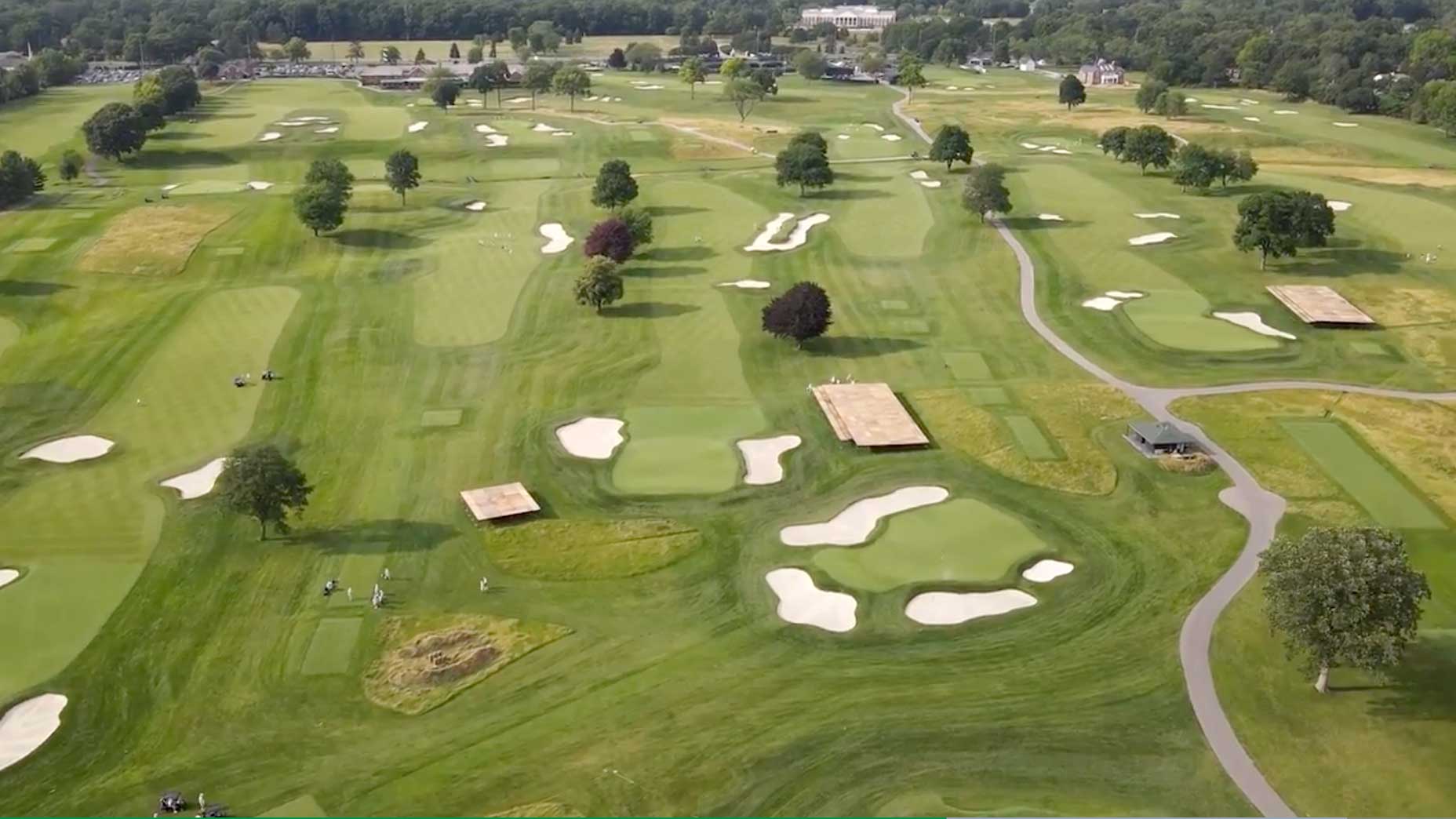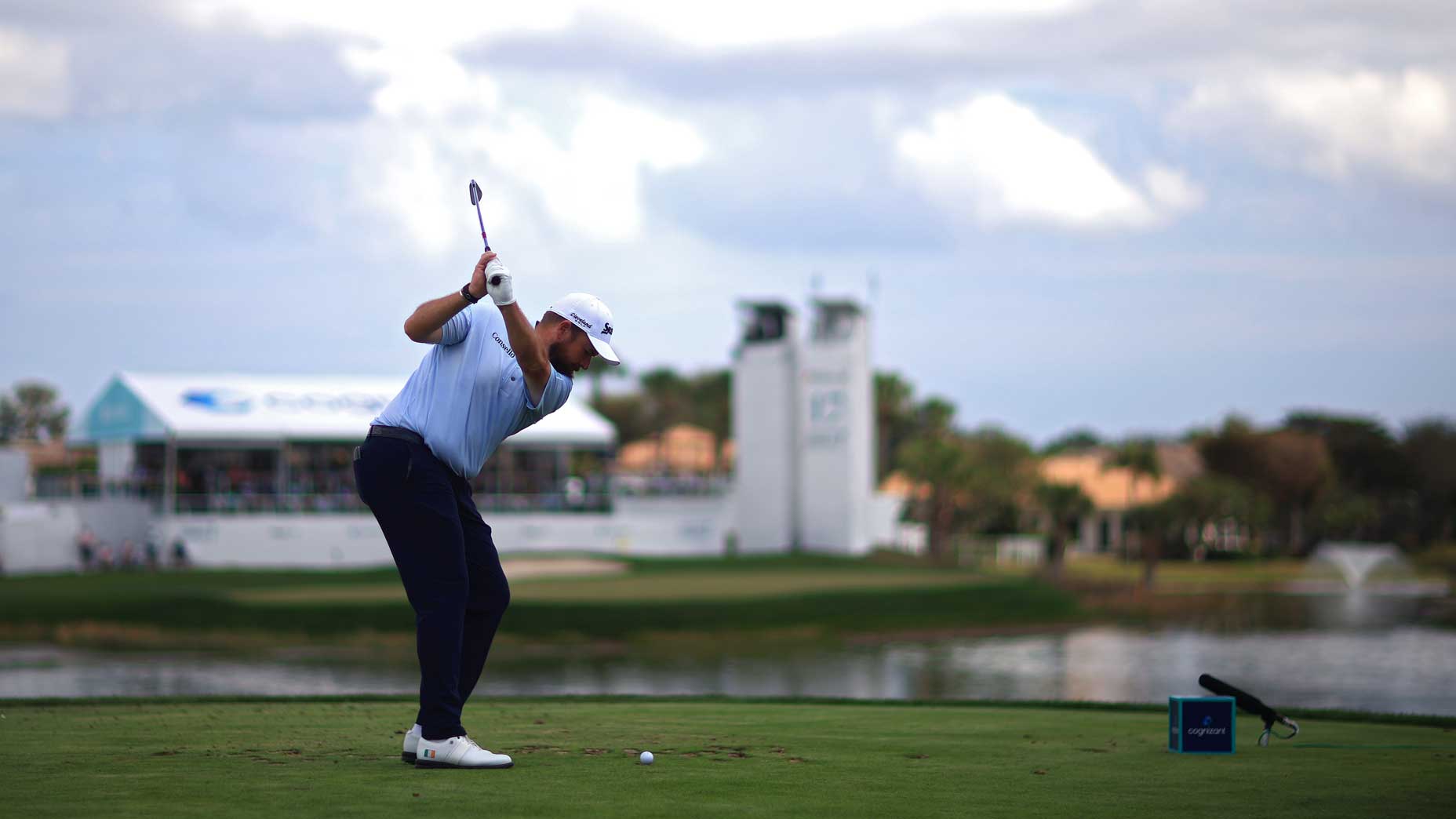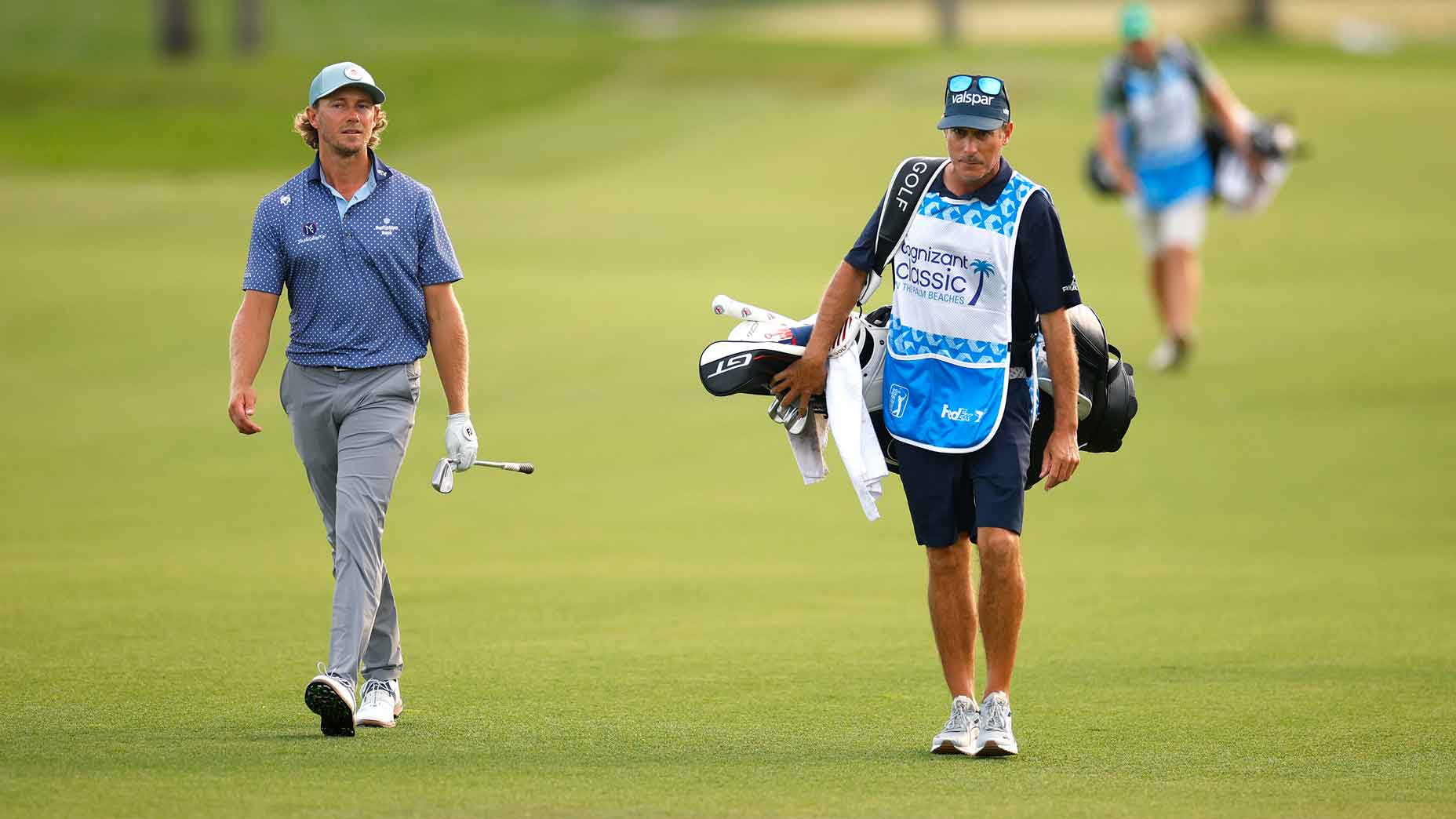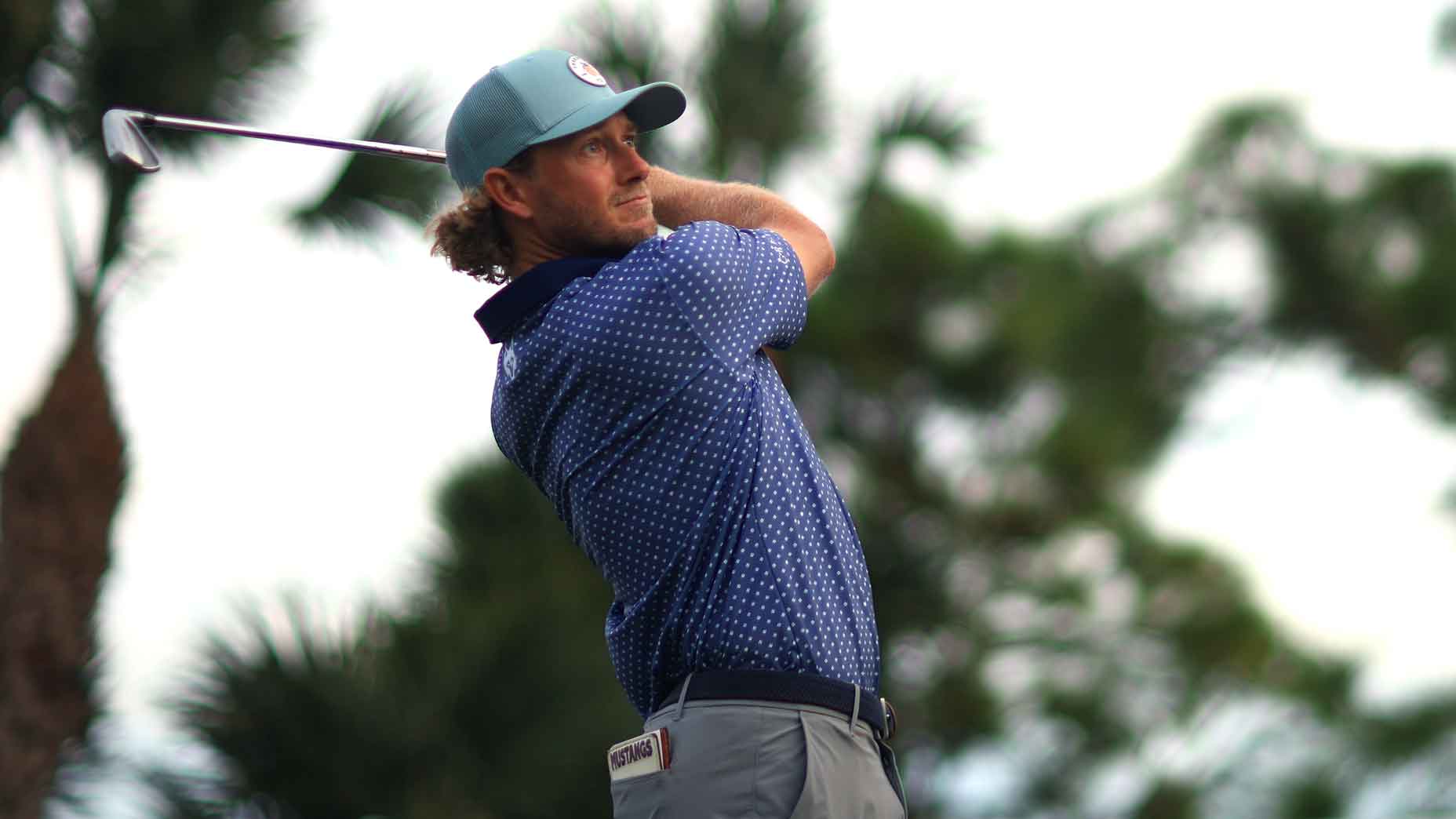Earl Woods was a talker sober or straight, and some of his Tiger musings were flat-out crazy. Check out his old quotes comparing Tiger and Gandhi, Earl’s comments enjoying a life in perpetuity on the Internet. But one statement the late great colonel made nearly 23 years ago is looking more prescient all the time, even if you hope it turns out to be not true. This is it, Tim Rosaforte, then of Sports Illustrated, catching Earl doing his swami act in the afterglow of Tiger’s second U.S. Amateur win, at the white-shoe Newport Country Club, late-summer, 1995:
“I’m going to make a prediction,” Earl Woods said that Sunday night, as champagne both tingled and loosened his tongue. “Before he’s through, my son will win 14 major championships.”
His youngest son’s first major championship came at the 1997 Masters, by 12 shots, at age 21, at Augusta National, a bastion of corporate elitism. Tiger’s 14th (and latest) major was ten years ago, at the 2008 U.S. Open at Torrey Pines, the municipal golf facility in San Diego where Tiger started winning events as a middle-class kid with Gumby arms and legs in 1984. Fourteen. One of golf’s sacred numbers. (At the “08 Open, Steve Williams carried a Nike SasQuatch 7.5-degree driver for his man, and 13 other clubs.) Only one golfer has more professional majors than Tiger, Jack Nicklaus. The number attached to Big Jack is even more sacred: 18.
Can you believe it’s been a decade since Tiger Woods and Rocco Mediate each shot 283 for 72 holes, forcing a Monday playoff? (RIP, USGA Monday playoffs.) Tiger Woods was 32 and playing on, to borrow Tiger’s shorthand, “a broken leg.” Rocco Mediate was 45, separated, strutting across the Southern California seascape with a peace-sign belt buckle and a smile borrowed from Alfred E. Neuman, his formerly balky and surgically repaired back getting miraculous treatment by his physical therapist/girlfriend/muse, Cindi Hilfman.
That Monday at Torrey was the closest thing golf has ever had to Rocky in the ring with Apollo Creed. (Rocco likes to quote from Rocky.) They both shot 71, even par on Torrey’s South Course, on that Monday. That meant more golf.
“I need to go to the bathroom,” Woods, coming off the 18th green, told the USGA’s Mike Davis.

Mediate was already heading to the tee for the first hole of what was now a sudden-death playoff, and he was less than pleased by the selected hole. The USGA had designated, before the Open had started, that the 19th hole, in the case of a tie after 18 holes, would be No. 7, as its tee was closest to the 18th green. His game was to hit draw shots, one after another, year after year, and the seventh was a dogleg right that pretty much demanded the players hit a fade tee shot. Rocco approached No. 7 knowing he had never hit its fairway. Not in rounds one or two or three or four—or five. Not with the dozen or more tee shots he hit in the one time he got to the seventh tee in a practice round. After one last effort to hit it that day, Rocco decided to call it quits.
“What about the balls?” his caddie, Matt Achatz, asked.
“Leave “em,” Rocco said.
Mike Davis, in charge of that Open and its playoff, had known Rocco for years, first meeting him in the early 1980s when they were both junior golfers in Pennsylvania. As for Woods, Davis had been watching him with intense interest all through the week. Practically on the eve of the Open, Woods’s agent, Mark Steinberg, called Davis and said, “I need to talk to you.”
He swore Davis to secrecy and then gave the USGA’s head of competitions a Woods medical report, including the double stress fracture in his left tibia.
“You’re telling me he’s basically playing on a broken leg?” Davis asked.
Davis and his fellow Far Hillers had already made the decision to group the game’s three top-ranked players together for the first two rounds. In other words, Woods with Phil Mickelson and Adam Scott. Had Tiger scratched, that marquee group would have been Mickelson, Scott and a player off the alternate list. Not quite the same thing.
Davis was both relieved and worried by Woods’s decision to play, and now Woods was on his fifth straight day of competitive golf on a 7,600-yard course that was not an easy walk.
Davis didn’t want Rocco to have an unduly long wait on the 19th tee. But he didn’t want to deny Tiger a bathroom break. Trying to assess the situation, Davis asked Tiger the delicate question any golf administrator might pose then and there.
“Number one or number two?” he asked.
“Number one,” Woods said.
Davis marched the world’s best player first to a nearby portable toilet, then escorted him to the seventh tee, where Rocco was waiting for him.
* * * * *
Rocco Mediate turned 50 in 2012, married again in 2014 (to the former Jessica Somers), became a father for the fourth time in 2015, won the 2016 Senior PGA Championship and last year endorsed a driver with vertical grooves. Working with John Feinstein, he wrote a book, Are You Kidding Me? He filled in as the host one year at Woods’s PGA Tour event near Washington, D.C., and was hurt and angry when, less than a half-year later, he was not invited to Tiger’s 18-man offseason tournament. (Mediate made the mistake of assuming he and Woods were friends.) Through the magic of TV, Mediate has maintained a reputation for being one of golf’s “lovable characters,” but, like any of us, he’s a person on this earth trying to figure things out. (He has, by his admission, struggled with money management, alcohol dependence, tobacco addiction and compulsive gambling.) Summing up Rocco at Torrey with striking efficiency, Cindi Hilfman wrote recently, “Rocco played perfect golf. He was free from anger and he trusted his body and he ran into Tiger, who is immortal and lucky.”

On the course, Hilfman nailed it: Woods is immortal and lucky. Off the course is another matter. We all know too much about Woods’s life over the past decade. Much of it has been painful to even contemplate. On the bright side, he became a father and has two healthy children. But there was also the stiletto parade (2009-’10) and the dissolution of his marriage. His various surgeries and his premature returns from them. His battle with the chip yips. His arrest last May and his subsequent month-long stint in rehab for drug abuse. Then, amazingly, a different Tiger appeared this year, one who seems healthy in every way, and fan response to him has been euphoric, rooted in a variety of emotions, but this one above all: Missed you, dude!
Tiger Woods has been on the national and international golf scene practically his whole life. It was in 1984 that he won the Junior World Golf Championship at Torrey, an eight-year-old playing up with the nine- and ten-year-olds, Earl (of course!) at his side in victory. By Father’s Day 2008—U.S. Open Sunday—Earl had been dead for two years. The Monday victory at Torrey Pines was Tiger’s third in a U.S. Open, all of them on public courses. (He won at Pebble Beach in 2000 and Bethpage Black in 2002.) You might associate Tiger with Nike, with the Masters, with his yacht Privacy. First and foremost, though, he’s a public-golf-course golfer, started in the game with clubs cut down to size by his father.
Maybe Tiger will win another major, or more than one, before he’s done. Next year, the PGA Championship is at Bethpage and the U.S. Open is at Pebble Beach. In 2021, the U.S. Open returns to Torrey. Tiger wins often where he has already won. But if he never wins another major championship, his father’s comment at Newport will get an upgrade. He used the word prediction in 1995. Maybe it was more than a mere prediction. Maybe it was actually a…premonition.
* * * * *
The USGA announced that Torrey Pines would be the site of the 2008 U.S. Open in October 2002. A few weeks later, Woods and Steve Williams, then finishing up his fourth year as Woods’s caddie, were walking the fairways at East Lake Golf Club in Atlanta, for the Tour Championship. “He could not stop talking about the Open coming to Torrey,” Williams, now semi-retired, said in a recent phone interview from his home in New Zealand. His book, Out of the Rough, contains some keen insight into how the 2008 Open played out. “For the next [six] years, we could be anywhere and he’d say things like, “Where do you think they’ll put the pin on six at Torrey? Do you think they’ll move up the tee on 14?” He was obsessed with it.”
Understandably! Torrey was Tiger’s personal ATM (Automatic Trophy Machine). Prior to the 2008 U.S. Open, Woods had won the Tour stop at Torrey Pines six times, including the 2008 version, when he won by eight. He won six Junior World titles at Torrey. Talk about courses for horses.
Nathaniel Crosby, the current U.S. Walker Cup captain, has unique insight into what Woods did in the 2008 U.S. Open at Torrey. In 1981, the U.S. Amateur was held at The Olympic Club, in San Francisco, where Nathaniel and his late father, Bing, had logged many rounds. There might have been a hundred or two hundred amateurs with better playing résumés than Nathaniel in 1981. But there was not another player in the field who knew the course so intimately, and who had such rich father-son memories from it.
“I found myself thinking about it all the time,” Crosby said recently. “I’d be driving and just thinking about the holes and how I would play them. You’re imagining success—it’s like you’re mentally rehearsing for what you’ll do. I had a burning desire for that Amateur. With my father gone, I felt I was playing in his memory, and that gave me greater motivation.” Crosby won, on the first hole of sudden death, wearing a medal from his father, from the crooner’s appearance in the 1940 U.S. Amateur, around his neck.

Crosby has made an informal study of Earl and Tiger. He summarizes how Woods did what he did at Torrey in the 2008 U.S. Open in two words: “Divine intervention.” By which Crosby means that the Earl-Tiger bond lived on that week just as the Nathaniel-Bing bond did at Olympic. Yes, Tiger was playing with intense pain, but also with a five-day adrenaline rush and immeasurable resolve. The brackish smell of Torrey Pines, the distinct morning dew there, this tree and that trap and this view, all those wins there, backed by the soundtrack of his father’s distinct baritone, it had to be transporting for Tiger. In ways that Woods could maybe not even see himself, the result of that Open at Torrey was preordained.
After the 2008 Masters, Woods did not play in any tournaments before the U.S. Open. When he arrived at Torrey, his game was a mess.
“Do you think this is really worth it?” Williams asked Woods early in the week.
“Shut the f–k up,” Woods said. “I’m playing.”
And with that we return to the playoff, to its 19th hole, Woods and Mediate each in a red shirt and black pants. Tiger had made a birdie on 18, to keep the playoff alive, just as he had made a birdie putt for the ages on 18 on Sunday, to force the playoff. On the 19th hole, Rocco missed the fairway again, his ball finishing, predictably, in the left rough. Woods hit a fading stinger to the extreme right side of the fairway. He closed with a par to Mediate’s bogey. Tiger had No. 14.
Before playing at the Torrey stop in late January this year, a reporter asked Woods, “What immediately comes to mind when you remember the 2008 U.S. Open?”
Woods did not pause.
“How much it hurt,” he said.





